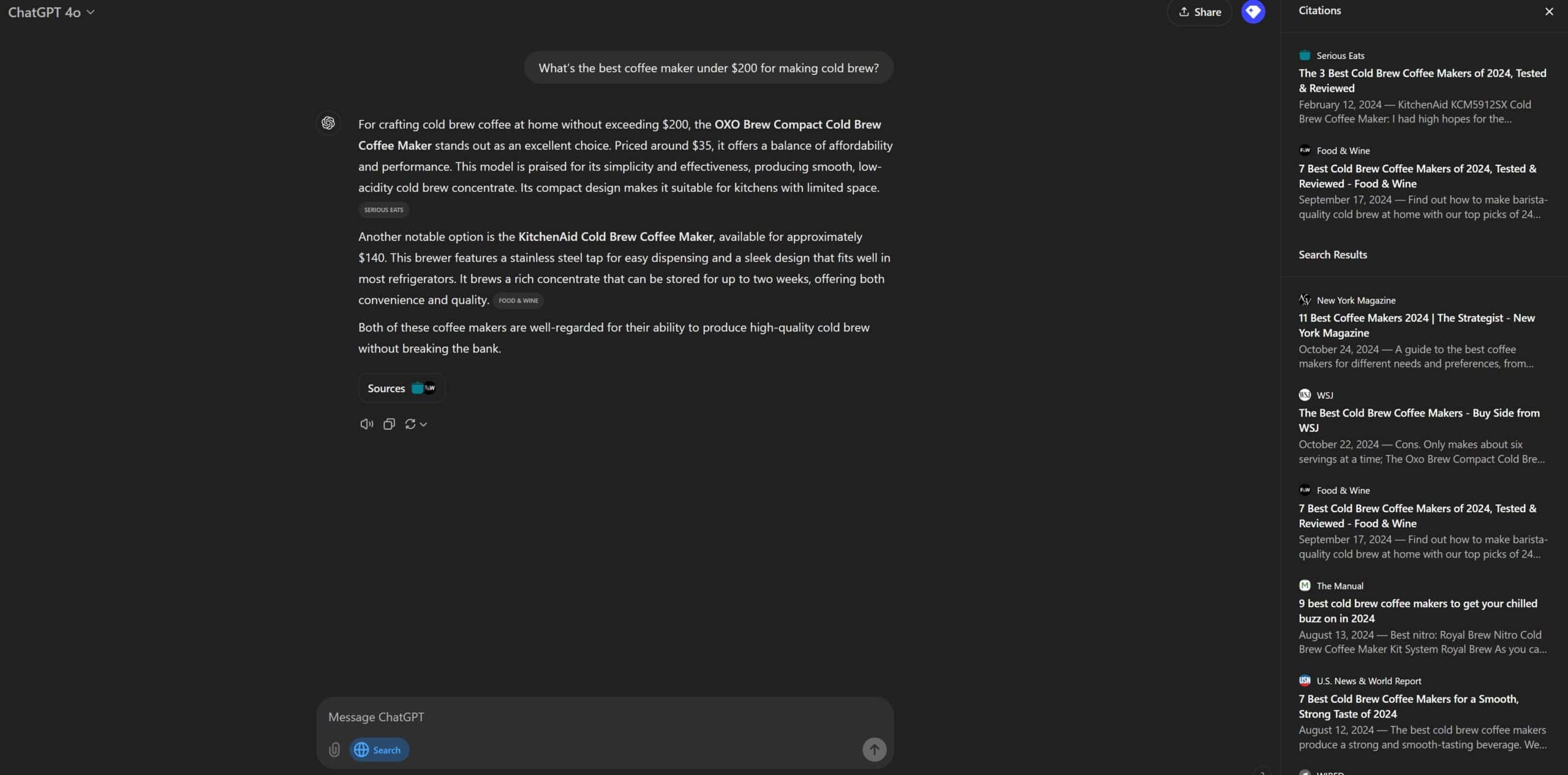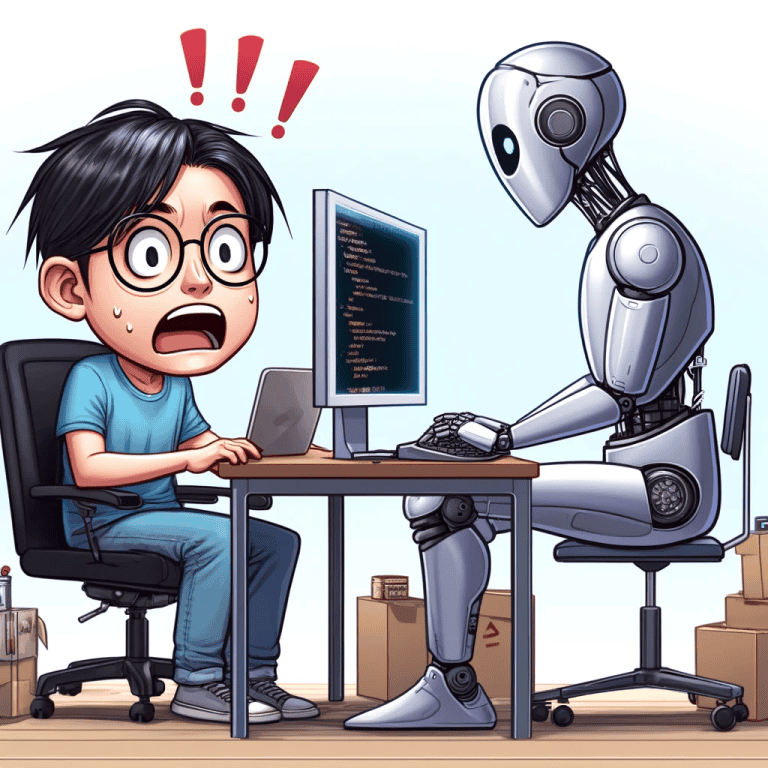SearchGPT: Is This the Future of Finding Answers Online?
Google search has become a minefield. You type in a straightforward question, expecting a quick answer, and instead get bombarded with ads posing as results. Then comes the endless scroll through keyword-stuffed blogs, where actual information feels like a hidden gem. Take my recent hunt for a coffee maker – I had to dig through a dozen review sites, each with their own biases and affiliate links, just to get a straight answer. It’s absurd that, in 2024, we’re still clicking through ten blue links and doing all the mental heavy lifting ourselves. But here’s the thing—change is finally in the air. With SearchGPT, we might just be on the brink of a search revolution. Let me explain…
What is SearchGPT, and How Does It Work?
SearchGPT is OpenAI’s attempt to address search fatigue—offering a different approach to how we find information. Instead of drowning you in ads and endless links, it cuts straight to the chase with direct, summarized answers. If you’re a ChatGPT Plus or Team subscriber, it’s already at your fingertips, seamlessly blending real-time information with AI-powered responses.
The Magic Behind the Scenes
Think of SearchGPT as a research assistant that helps consolidate information from multiple sources. When you ask a question, it sprints across the web in real-time, digesting information from multiple sources. But here’s the best part—instead of throwing 20 tabs worth of reading at you, it distills everything into one clear, coherent answer.
Gone are the days of playing “spot the actual content” between ads and SEO fluff. SearchGPT does what we’ve always wanted: it finds the signal in the noise.
Real-World Example: Remember my coffee maker hunt? With SearchGPT, I’d simply ask, “What’s the best coffee maker under $200 for making cold brew?” Instead of opening a dozen review sites and cross-referencing affiliate-laden recommendations, SearchGPT pulls reliable information from across the web, compares features and real user experiences, and presents a clear summary. No clickbait, no keyword stuffing—just the information you need.
While it’s still early days, SearchGPT represents an interesting shift in how we might approach search in 2024.
What Makes SearchGPT Different from Traditional Search Engines?
It Actually Answers Your Question
Gone are the days of playing “Choose Your Own Adventure” with search results. Instead of saying “Here are 10 links that might help,” SearchGPT actually answers your question. Imagine asking a question and getting—wait for it—an actual answer! No more opening five tabs just to find out if that weird noise your dishwasher is making is normal or if it’s about to explode.
It’s Always Up to Speed
Remember when AI was like that friend who’s perpetually living in 2021? Not anymore. SearchGPT brings real-time information to the table. Whether you’re checking yesterday’s game score or today’s tech news, it’s got you covered. By plugging directly into ChatGPT, you get the best of both worlds: current information with AI-powered insights. It’s like having a super-smart friend who actually keeps up with the news.
It Remembers What You’re Talking About
Here’s where it gets really interesting. Traditional search is like having a goldfish for an assistant—every query feels like starting from scratch. SearchGPT, on the other hand, actually remembers your conversation. Let’s say you’re back on that coffee maker hunt. You can ask about the best options under $200, then follow up with questions about specific features, maintenance tips, or user reviews. No need to retype your requirements or start over—it keeps track of what you’re looking for and builds on each response.
Where Does SearchGPT Fit in Today’s Search Landscape?
The Google Question
Look, let’s address the elephant in the room: Is SearchGPT going to dethrone Google? Not overnight. But it’s doing something really interesting here. While Google’s still playing the “here’s-a-bunch-of-links” game, SearchGPT is saying “here’s-your-actual-answer.” It’s like the difference between asking a librarian for help versus being told which shelves to check yourself.
Who’s This Really For?
Everyone who’s ever muttered “just tell me the answer” at their screen—so, basically, all of us. Whether you’re trying to figure out if you can microwave that takeout container (spoiler: probably not), or diving deep into research for work, SearchGPT adapts to your needs. It’s like having that tech-savvy friend who can explain things in plain English when you need the basics, but also go full tech-spec mode when you want to geek out.
The Creator’s Dilemma: When Search Gets Too Smart
Look, I’ve been on both sides of this fence. I once ranted via a blog post on PageRank and its impact on small creators, where I’m still celebrating days of two whole visitors. Well, SearchGPT presents an even more interesting challenge for creators like us.
Here’s the uncomfortable truth: while SearchGPT makes finding information more efficient, it’s essentially building a highway right over our neighborhoods. Sure, the information gets where it needs to go, but what about all the local shops—the blogs, the independent writers, the passionate creators—that used to be part of the journey?
When SearchGPT pulls information from across the web and serves it up in a neat little package, what happens to sites like mine? Sure, there’s a little citation at the bottom, maybe a few source links on the side, but let’s be real—who clicks those? It’s like being mentioned in the credits of a movie. Nice, but not exactly paying the bills.
Don’t get me wrong—I’m not suggesting we go back to the dark ages of sifting through page after page of SEO-stuffed content. But perhaps we need to think about balance. How do we preserve the value of human-curated content while embracing the efficiency of AI? How do we make sure the creators don’t get lost in the summary?
For now, I’ll keep writing, keep sharing my experiences, and keep trying to make tech more approachable—even if I’m writing about the very technology that might make my job harder. Because at the end of the day, isn’t that what being human is all about? Adapting, persisting, and finding our place in an ever-changing digital world?
But hey, I’d love to hear your thoughts on this. Are you a creator worried about getting lost in the AI shuffle? Drop a comment below—let’s figure this out together.






